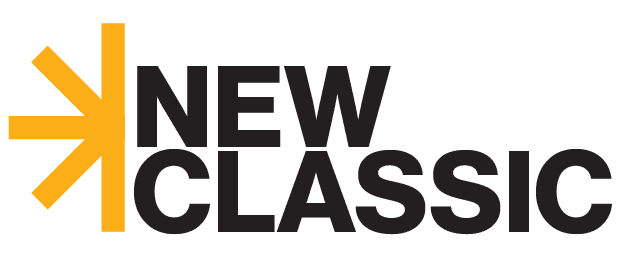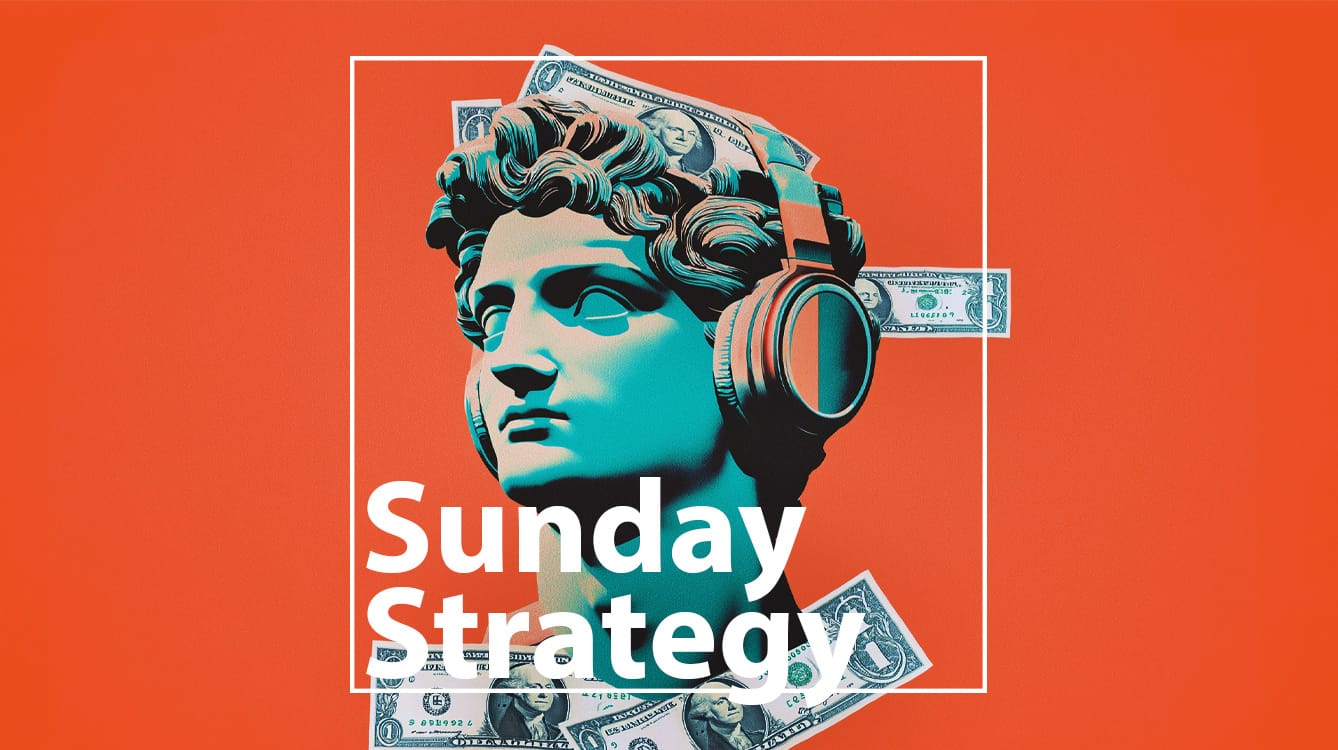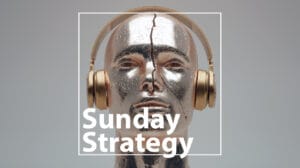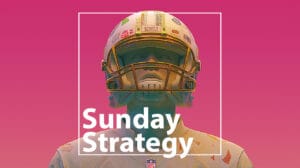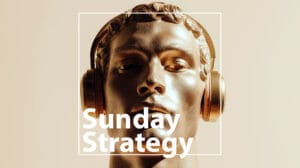In this issue of Sunday Strategy, we look at five stories to think about next week, including: SMB’s looming brand moment, BNPL comes to takeaway, Gen AI’s growing website traffic, Brand Conflict and User Generated Users.
In addition, we have ads from: The Iconic, Liquid Death, Heineken, IKEA and PUMA.
// Five Stories of the Week:
1.) The Moment for SMB Brand Building.
The latest data from the NFIB on small business attitudes in the US shows a looming need for SMBs to build a stronger brand. As uncertainty for SMBs continues to rise and sales expectations for the next three months fall, amidst greater trade war potential and tariffs – SMBs are increasingly planning to raise their prices.
However, the latest data from the University of Michigan’s Consumer Confidence Index shows that confidence is continuing to decrease amongst a possible recession, increasing scrutiny on brands, prices and purchases. For SMBs, trying to justify a potential price rise to inflation weary and pessimistic consumers will be a challenge that may likely fall to brand effect to solve.
*If you are a small business looking to improve your brand, check out our recent brand framework on how to construct or audit a brand.
2.) Eat Now, Pay Later.
Buy Now, Pay Later (BNPL) brand Klarna has announced a partnership with delivery brand DoorDash in the US, allowing users to pay for takeaway food via full payments, interest free installments or deferring until payday. The move, ostensibly to increase access to delivery options for those worried about cash, has triggered concerns about the economy and delivery fuelled debt. Indirectly, it looks to also increase the death of the ‘doggie bag’ and leftovers, as consumer tastes continue to move towards fresh, delivery food. While a stock market crash linked to bundling toxic delivery debt is still unlikely, it might be time to start considering options in Chipotle Burritos and not just Chipotle (*not real financial advice).
3.) The Doubling of Gen AI Traffic
Adobe has released data showing traffic to US sites from Generative AI has jumped more than 1200% since July 2024. Traffic looks to have doubled every two months since Sept 2024, with banking, travel and retail sites all seeing significant uplift. Beyond increases in traffic, AI primed visitors are more likely to engage – showing 8% higher site engagement, 12% more pages per visit and a 23% lower bounce rate.
However, propensity to purchase is still slightly lower than non-AI sources, highlighting a potential gap in intention vs. investigation amongst visitors who came through AI. This back and forth effect from AI has also been seen in preferred screens used, as 86% of AI visits came through desktop vs. 36% of e-comms visits overall. So as Gen AI continues to mature, we may see sites being pulled further up the consumer journey, with users moving between websites and AI in a different way than when visiting on their own.
4.) The Brands Are Fighting Again.
Brand conflict isn’t new, just ask Pepsi and Coca-Cola or Windows and Mac, but an age of ‘unhinged brands’ and social media has increased how brands interact and create comparative advertising. While a comparison ad may put a challenger brand on the map, it may also erode long term trust and credibility in the brand or category. How a brand fights with its competitors publicly is a delicate balance of spectacle and substance. As brands use conflict to capture attention, they have to be careful not to overdo it and make the fight, not the brand, the focus.
5.) User Generated Users
A telecoms company in New Zealand has become the first company in the world to create a deep fake of a customer to star in their ads. Liz from Kerikeri will be the spokesperson for ‘Skinny’ for the next two years, or atleast her AI clone will be. Winning a competition to be the digital clone, Liz’s biometrics and mannerisms have been captured to recreate her authentically, though she has a say on how it is used and whether it continues after two years.
The clone mirrors moves by brands to use deep fake celebrities (such as Bruce Willis or David Beckham), but evolves further, levelling up brand usage of AI influencers to instead try and bridge authenticity with AI.
// Ads You Might Have Missed:
1.) ‘Banner Ad Changing Room’ – The Iconic:
Banner ads are an easy target – with many being an obvious source of consumer hate and bad advertising. So they’re a great foil for a campaign – which Australian online fashion retailer ‘The Iconic’ used to bring their ‘got you looking’ platform to life. Their ‘Banner Ad Changing Room’ concept aimed to make people pay attention to banner ads again, but live streaming customers trying on clothes directly to banner ads on the website of News Corp. publications (including Vogue). The idea shows how media can be hacked to subvert expectations and how a story can be made out of it. While it would struggle to scale further, the online activation – coupled with experiential content creation – shows how brands can take ignored elements of media and give them new life with creativity.
2.) ‘Pub Succession’ – Heineken:
As pubs and nightlife struggle around the world, Heineken has taken a unique approach to preserving the heritage of one Irish pub, family run for the last 155 years on the west coast of Ireland. McLoughlin’s pub on Achill Island has been in the family for generations and reflects a rule in the 1870s that pubs had to bear the name of the owner on the outside. However, as the current owner has no heir to pass it on to, the brand has stepped in to help recruit a new McLoughlin, any McLoughlin, to move to the island and run the pub. For anyone bearing that name, you’ve got a pub waiting for you.
The ad ties together two cultural concepts – marrying the ‘best job in the world’ style approach where a brand offers a one off profession and the revitalization of rural areas often seen in Italian townships offering discount property to new residents.
3.) ‘Kegs for Pregs’ – Liquid Death:
Water brand Liquid Death has continued its stream of partnerships and new products, with an eye towards showing a clear separation between its canned water and alcohol. In a campaign called ‘Kegs for Pregs’, the brand has enlisted Kylie Kelce, 8 month pregnant podcaster and wife of ex Philadelphia Eagles center Jason Kelce, to help promote limited edition kegs of water for pregnant women. The kegs themselves sold out quickly, but the ad supporting it continues to deftly show how the brand can apply its unique tone to new audiences and areas.
4.) ‘Go Wild’ – PUMA:
PUMA released two ads this week, one which Monks used agentic AI to create from scratch which has sparked discussion on AI, advertising and quality. It feels more like an early moodboard than an ad based on an idea – but that isn’t surprising given the early maturity of the technology. While this will continue to refine, for now – PUMA’s other ad ‘Go Wild’, shows how an idea at the heart of an ad makes it stand out.
“Go Wild’ borrows on the endorphin high messaging seen previously from fitness brands like Hydrow (with the alliterative ‘Hydrow High’) and even fitness gummy brand Offield. The ad sample’s Afroman’s eponymous early 2000’s track ‘Because I Got High’ to juxtapose scenes of runners suffering, enduring and moving while seeking out the runner’s high. The combination of grit and resolution speaks to the highs and lows of running well, subtly reminding advertisers that a good idea remains elusive even in the age of AI.
5.) ‘Important Work’ – IKEA:
The Severance hype train has been picking up steam for weeks in advance of Thursday’s finale and brands have been hopping on it in official and unofficial ways. One piece of work that shows how to simply intersect with culture around a moment like this, is from IKEA in Australia. A TikTok they posted simply has four of its ‘Mittzon’ acoustic screens arranged similarly to the MDR pod from the TV show, with the caption “For work that is mysterious and important”. IKEA has a long history of using its furniture for cultural commentary and this great example continues it. A simple idea that definitely earns a waffle party.
// Sunday Snippets
// Marketing & Advertising //
// Agency MullenLowe has put together an ‘alternative cultural calendar’ for 2025
// BCG urges marketers to move beyond the funnel to ‘influence maps’ – trying to avoid saying ‘messy middle’ at all costs [Marketing]
// Elon Musk tells Tesla employees to not dump their stock [Brands]
// Dog toy KONG returns to its roots, after being inspired by a VW auto part, with a new partnership [Product]
// Publicis and Ripple+ make a breathable bullet to highlight the dangers of lead in illegal vapes [Product]
// Technology & Media //
// Netflix references their potential scale in continued gaming efforts [Gaming]
// “Coyote vs ACME”, a Looney Tunes film shelved for tax savings looks to have a second life [Movies]
// A ‘chubby face’ filter has sparked outrage and been pulled from TikTok [Social Media]
// Video game music continues to expand on music festival circuit [Music]
// The ‘White Lotus’ continues to show the melodrama of male nudity [TV]
// UK broadcasters are fined for colluding on freelancer rates [Work]
// New Zealand has created destination based tourism DLC in Minecraft [Gaming]
// A death live streamed on X sparked a memecoin frenzy [Cryptocurrency]
// TikTok will now show AMBER alerts of missing children in the US [Media]
// Has the decline of active online engagement killed being ‘chronically online’ [Media]
// The disconnect between manager’s intentions and workers reality for AI is growing [AI]
// Knitting while watching movies takes hold in Austria [Culture]
// Life & Culture //
// The Office of National Statistics (ONS) in the UK has updated its list of 700 items it tracks to measure inflation – dropping DVD rental services and adding VR headsets [Finance]
// 1/5th of Gen Z festival goers are planning to go to less music festivals – is it the economy or something more? [Culture]
// 80% of those born between 1997 and 2012 say they have strict criteria to what they eat and drink [Culture]
// Is the tide turning against tattoos? [Culture]
// Boxing great and grill magnate George Foreman has died [Culture]
// The Met is proactively re-evaluating the providence of its collection and how to return stolen work [Culture]
// Americans are asking if it’s time for a second passport [Culture]
// Almost on cue, Switzerland’s new passport design goes hard [Design]
// Acne Studios and Kappa are launching a new collection on March 27th [Fashion]
// MSCHF and The Ordinary have partnered to sell…eggs [Collabs]
// Nightclub culture missed a moment for change post-Covid, is it too late? [Culture]
// Until Next Sunday
As always, let me know what you think by email (dubose@newclassic.agency), website or on LinkedIn.
You can also listen to an audio summary and discussion of each week’s newsletter on Spotify. We’re also on TikTok!
